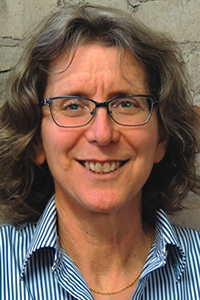
Nora Goldstein
BioCycle May/June 2019
At the BioCycle WEST COAST19 Conference last month in Portland, Oregon — where we celebrated BioCycle’s 60th Anniversary — we scheduled one-on-one conversations with about 25 randomly selected conference participants. The purpose was several-fold: To learn about the tools needed to successfully achieve both their short- and longer-term goals; Provide feedback on BioCycle’s current products and services, including our Conferences; Suggest how BioCycle can best assist going forward.
The responses are inspiring and motivating. We are still sifting through them, as well as our notes from facilitated discussions at the Town Hall at the end of the Conference where some of the same questions were asked. One response that I really took to heart is this: “Don’t get tired of your mission. … BioCycle has more to do in the next 60 years.” Our mission was clearly stated by our founding publisher, Jerome Goldstein, in the inaugural issue’s Statement of Purpose in Spring 1960: “We are publishers and editors thoroughly convinced that there is a need to conserve this country’s as well as the world’s natural resources. We believe that converting municipal and industrial organic wastes into useful products would be an effective step forward in a long-range conservation program. And along with the conservation benefits is an aspect equally as important — that of developing a treatment process that does not create subsequent problems in water or air pollution.”
From Day 1, 60 years ago, our mission has been focused on recovery of resources in order to reuse them for beneficial purposes — and thus conserve our natural resources. In Spring 2019, that mission has become more urgent as the damaging effects of climate change are evident all around us. When done correctly, organics recycling solutions come with no climate regrets. Accelerating implementation of those solutions is Mission Critical in communities around the world.
On April 18, I had the opportunity to attend a “Make Compost, Not Trash” community meeting, organized by the New York City Department of Sanitation (DSNY), in the Bay Ridge neighborhood in Brooklyn. Bay Ridge is one of the districts currently served by DSNY’s curbside food waste collection program. Make Compost, Not Trash is an outreach campaign designed to talk with residents and encourage more frequent participation in the curbside program. Over 50 residents attended the meeting, and all engaged in facilitated roundtable discussions focused on what they like and don’t like about separating their food scraps for collection, what can be done to improve the program, etc. At my table, a resident who had stopped participating said at the end she was “motivated and excited” to start again. Residents noted that recycling their food scraps helps reduce greenhouse gas emissions. And all the sample bags of compost were taken.
The following Monday (Earth Day), New York City Mayor Bill de Blasio announced his Green New Deal, which included making organics collection mandatory citywide. Last Thursday (April 25), the Mayor released his FY2020 budget. He included funding to maintain the existing organics collection program, but there is no funding to expand beyond the current districts being served. There will be minimal money to continue the Make Compost, Not Trash outreach.
Successful citywide rollout of curbside and drop-off food waste collection in a city the size of New York will be a huge contributor to helping this nation tip the scales toward widespread implementation of no regret climate solutions. To paraphrase a line from Frank Sinatra’s “New York, New York,” if you can do it there, you can do it anywhere. The journey is hard, but long-term commitment and continual improvement, not lip service (e.g., announcing mandatory collection and then not funding it), is Mission Critical.









